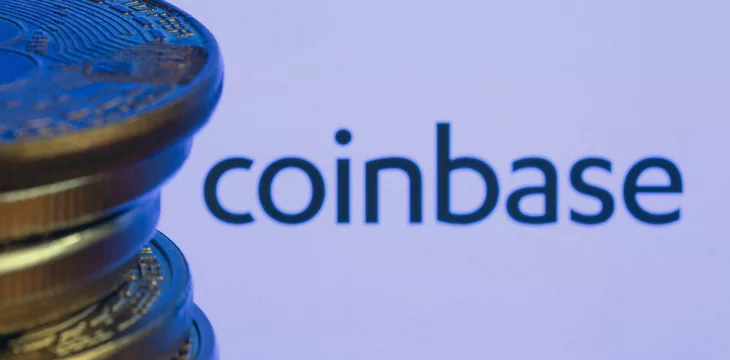|
Getting your Trinity Audio player ready...
|
Ex-Coinbase product manager Ishan Wahi has been sentenced to two years in prison for insider trading he had committed while working at the exchange, in what the U.S. Department of Justice calls the first ever digital asset insider trading case.
Wahi, whose role at Coinbase (NASDAQ: COIN) involved the “highly confidential process of listing crypto assets on Coinbase’s exchanges,” was accused by the Department of Justice of supplying information about upcoming digital asset listings to his brother Nikhil Wahi and friend Sameer Ramani, which they then used to generate profits of ‘at least’ $1.1 million once the listings were publicly announced.
Ishan Wahi was arrested in May 2022, apparently while in the process of trying to flee to India. Wahi was arrested before boarding the flight. Wahi eventually pleaded guilty to charges of wire fraud conspiracy in February, leading to this week’s sentencing.
Nikhil Wahi was sentenced to 10 months in prison back in January over his use of the misappropriated information. Ramani appears to still be at large.
The trio are also facing a civil complaint from the Securities and Exchange Commission (SEC) over the scheme, in which they are accused of violating federal securities laws. The SEC was seeking civil penalties and full disgorgement against the defendants, and in April the SEC told the court that it had reached an agreement in principle to settle with Ishan Wahi, and was nearing a settlement agreement with Nikhil—though as of May 10 there had been no formal settlement with either brother and the case still appears to be headed for trial.
Coinbase scrambling
It’s a bad time for Coinbase to be associated with insider trading: the firm just reported its fifth consecutive quarter of negative profits. The mere existence of confirmed insider trading within Coinbase is a PR disaster by itself, but the SEC’s charges have left Coinbase scrambling for another reason.
The SEC is fundamentally concerned with securities: this includes its powers to take action against insider trading, which is limited to instances where the ‘trading’ is being done in regard to securities. Therefore, the SEC’s charges against the Wahi trio only make sense if, as is being increasingly pointed out by regulators and lawmakers, Coinbase is in the business of listing securities.
The upshot is that if Coinbase is listing securities, then it is currently and has always been an unregistered securities dealer in violation of U.S. securities laws.
Though the cryptocurrency exchange has always decried any attempt to characterize the assets it lists in that way, the fact that most digital assets amount to securities has been obvious for some time. This is true under a plain interpretation of the Howey test, which determines whether or not a given offering is an ‘investment contract’ and thus a security. It’s also increasingly being reinforced by enforcement actions taken by regulators in the past 12-24 months: just recently, the New York Attorney General took action against KuCoin for failing to register as a securities and commodities broker-dealer despite listing securities—such as Ethereum—on its platform. SEC chair Gary Gensler himself reiterated in February that most digital assets are securities.
This is presumably why Coinbase chose to intervene in the SEC’s case against its former employee: not to assure the regulator that it is doing everything in its power to stop a Wahi-like incident from ever happening again, but to try and get the case dismissed on the basis that the exchange does not list securities. Coinbase filed an amicus brief in April, saying that “the SEC has it wrong—Coinbase does not list any securities on the platform” and then (never missing the chance for a swipe at regulators) “equally mistaken is the SEC’s pursuit of this case while simultaneously refusing to promulgate any rules for the crypto industry at all.”
But to the SEC, the rules are clear as day: the problem is that many within the digital asset industry simply don’t want to abide by them.
“[the SEC] has the laws and authorities to oversee crypto intermediaries,” SEC Chairman Gary Gensler told a House Committee last month, adding that he’d “been around finance for over 40 years in one way or another” and had “never seen a field so non-compliant with laws written by Congress and affirmed over and over by the courts.”
Indeed, Coinbase’s criticism of the SEC is a tired one, and one that the courts have rejected when deployed to defend against securities enforcement. To illustrate the speciousness of the criticism, it was recently used by Ripple to try and get out of a securities enforcement action against the SEC—only for it to turn out that Ripple’s own lawyers had been perfectly able to interpret securities laws and had warned Ripple that its offering of XRP was potentially an investment contract (and thus a security). A decision in the Ripple case is pending, but a similar attempt was resoundingly rejected by the courts in SEC v LBRY in November.
Should the SEC’s case against Wahi end in a verdict against the ex-Coinbase staffer and his friends, it would be yet another demonstration that most digital assets listed on platforms like Coinbase are securities—and further highlight that Coinbase is breaking the law by operating as an unregistered securities dealer.
Follow CoinGeek’s Crypto Crime Cartel series, which delves into the stream of groups—from BitMEX to Binance, Bitcoin.com, Blockstream, ShapeShift, Coinbase, Ripple,
Ethereum, FTX and Tether—who have co-opted the digital asset revolution and turned the industry into a minefield for naïve (and even experienced) players in the market.

 02-18-2026
02-18-2026 




